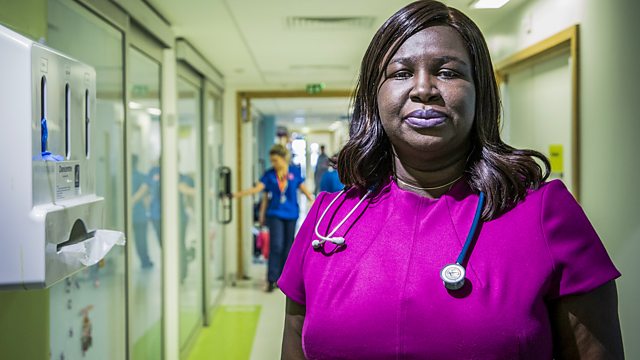
As medical advances save children who a decade ago may not have survived, Alder Hey Children’s Hospital faces the challenge of providing ongoing care for these complex patients.
Alder Hey Children’s Hospital predominantly treats patients up to 16 years of age. But as medical advances save children who a decade ago may not have survived, the NHS faces the challenge of providing ongoing care for these complex patients, both as children and as they transition to adult services. ‘Medical miracles’ pose new sets of longer-term questions to parents and clinicians alike.
Eight-month-old Elsie’s parents Jenny and James were told at a routine 20-week maternity scan that she had such serious kidney abnormalities, there was nothing to be done for her, and they should terminate the pregnancy. But they were determined to meet their daughter, and despite the fact that they were told at birth to expect the worst, Elsie survived. She has spent all but two weeks of her life in hospital and had 11 operations in a bid to repair the problems caused by a genetic chromosomal problem so rare that Alder Hey have never seen it before. As Elsie is facing a kidney operation next, Alder Hey strive to get her well enough to spend precious time at home with her family.
At just eight weeks old, 17-year-old Holly’s parents were told there was nothing more medically that could be done for her. They held their baby daughter in their arms and waited for her to die. But she didn’t. Thanks to medical advances, Holly is now about to turn 18, despite having a very rare genetic disorder that has caused a severe form of cerebral palsy and breathing difficulties amongst many other challenges. At 18 she needs to transition from Alder Hey to adult services in Liverpool – a huge leap for her parents, who have been used to wrap-around care at one of the world’s best children’s hospitals. But in the last year, Holly’s health has declined and her parents are facing an agonising choice – transition to adult care or accept that Holly may be facing her biggest health challenge yet and one that may not be surmounted by clinicians. Do they and Holly keep fighting or accept that the time has come to accept palliative care at a children’s hospice?
The complex children that Alder Hey treats are not just those that are born with very complicated conditions. Twenty-two-year-old Jack was born healthy, but at eight years old he was hit by a car outside his house as he crossed the road. He suffered a traumatic and catastrophic brain injury. Alder Hey treated him and saved his life, but he was left with severe disabilities and very little cognitive function. His parents have devoted their life to caring for Jack, predominantly at home. But he has been admitted with a serious infection, and the medical team face a challenge to restore his health as his breathing begins to deteriorate.
Jack is one of over 30 extremely complex ‘children’ needing input from many different specialities, who are over the age of 18 but haven’t yet managed to transition to adult care. The eldest is 28. These patients are currently sitting on an ‘exemption’ register that Alder Hey runs, which allows them to continue to be treated at the hospital whilst their move to adult services is negotiated and planned. The 30 most complex patients cost the hospital £9 million in the last year alone, £4 million pounds more than they were funded for this cohort. As the numbers of children surviving continue to rise, this will be an unsustainable situation for Alder Hey in the future.
Audiences witness the complexities of the dilemmas and decision-making, which happen every day for physicians, surgeons, anaesthetists and managers, and the impact these decisions have on patients.
Against the backdrop of historic demands stemming from limited resources, increasing patient numbers and social care at full stretch, the series shows the extraordinary work of some of Liverpool’s 20,000 NHS hospital staff as they push the boundaries of what is possible with world-class, cutting-edge treatments and life-saving operations.
Last on
Credits
| Role | Contributor |
|---|---|
| Executive Producer | Jackie Waldock |
| Series Producer | Meghan Just-Truelove |
| Executive Producer | Eric Harwood |
| Series Producer | Kate O'Hara |
| Editor | Mark Rossiter |
| Executive Producer | Lorraine Charker-Phillips |
| Executive Producer | Simon Dickson |
| Production Company | Label 1 |
Explore extensive resources and information on healthcare and nursing with The Open University
Visit the Open University website.
